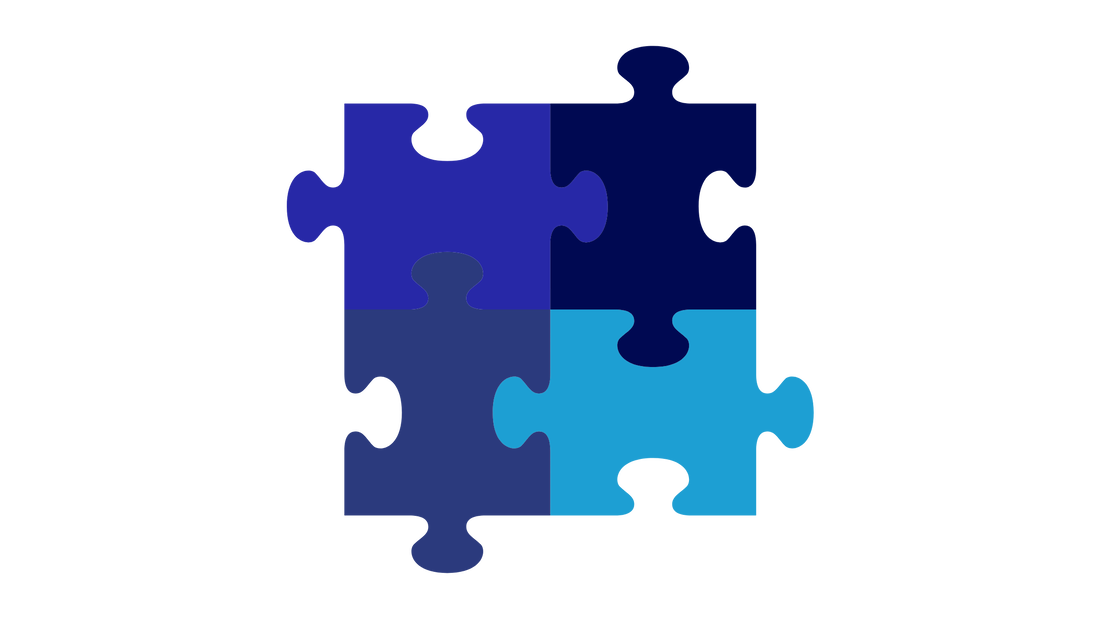"Community is the Solution!"
1:00pm-4:30pm Wednesday, 4/21/21
9:00am-12:30pm Thursday, 4/22/21
Opening Keynote Speaker:
Allison Sampson-Jackson
Motivational speaker for trauma-informed care and treatment practices
Closing Keynote Speakers:
Brandon Wrencher
Community activist, pastor, and blogger on relationships, race, and communities
Michael Hayes:
Trauma and resilience educator, founder of Umoja Health, Wellness, and Justice Collective
9:00am-12:30pm Thursday, 4/22/21
Opening Keynote Speaker:
Allison Sampson-Jackson
Motivational speaker for trauma-informed care and treatment practices
Closing Keynote Speakers:
Brandon Wrencher
Community activist, pastor, and blogger on relationships, race, and communities
Michael Hayes:
Trauma and resilience educator, founder of Umoja Health, Wellness, and Justice Collective
For registered participants, you can still view all the recordings!
To view conference recordings, use your magic link provided to you.
All recordings are available on Expo Pass for one year after the conference.
To view conference recordings, use your magic link provided to you.
All recordings are available on Expo Pass for one year after the conference.
A special thank you to our
Sponsors!
Sponsors!
Partnering Sponsor:
Stepping Stone of North Carolina
|
Scholarship Sponsor:
Rumple Memorial Presbyterian Church Resilience Kit Sponsors: Eaglewood Construction and Landscapes, Community Care Clinic, High Country Community Health, Mediation and Restorative Justice Center, OASIS, Local Interagency Coordinating Council, Watauga County Schools |
Supporting Sponsors:
|
See what's happening at this years conference.
2021 Conference Schedule
|
Slow Stitching - Circles to Center Your Mind
Pets & Human Trauma: Important Connections & Concerns Social Justice As A Spiritual Discipline Resilience Care: What Self-Care (Wellness) Really Is and How Relational Care Can Help Partnering with Businesses to Become Trauma Informed Faces of ACEs, Thriving Lives: A Life From Black and White to Color Local Law Enforcement: Roles in the Community |
Circles are a symbol of wholeness, being complete. Many cultures see circles and the nautilus/spiral as sacred. We will use these symbols in the mindful craft of slow stitching to help us slow down, make intentional marks with thread and find meditation in a rhythm of motion from needle to thread passing through the texture of fiber. Use as self care for teachers, administrators or take back to your classroom.Explores the relationship between animal loss/cruelty and ACEs and Toxic Stress. Discusses the importance of assessing for animal–related traumatic experiences. Demonstrates the use of the Childhood Trust Survey on Animal-Related Experiences (CTSARE), and provides practical intervention examples.Spiritual disciplines are habits, practices, and experiences that develop, grow, and strengthen certain qualities of spirit, build character and expand the breadth of one’s inner life. This presentation explores how to use social justice as a multi-faith spiritual discipline that builds the character of an entire community.
We will discuss ways to engage with the people closest to us in order to boost our own and their resilience care, even at moments of highest distress, including when trauma triggers are activated.
AppHealthCare has been offered the opportunity to work with George Washington University, the American Public Health Association, and the National Association of County and City Health Officials with the support of the Centers for Disease Control and Prevention to implement a Community Resilience Catalyst pilot. AppHealthCare is working across sectors and alongside WCCI to understand the things in our community that lead to poor health and unequal employment and housing opportunities in Watauga County. This presentation will describe our work thus far, lessons learned, and plans for the future.
A personal account of life-changing experiences that have opened my eyes to the impact of faith and understanding trauma. A story of healing.
Local Law Enforcement Officers share how they connect with the community.
|
|
Whiteness as Racial Trauma: Reducing Racism, Reducing Trauma
A Teacher Panel on Compassionate Schools Working with Student Services Staff to Create a Trauma Informed Environment Strengthening Mind, Body, and Spirit: A Clear Path to Wellness A Creative Approach to Mental Health Community Heals |
This session explores racism as trauma for children, families, and communities of Color and how White people can make an impact in reducing racial trauma.Teachers from grade spans K-2, 3-5, and 6-8 share how they live out ideals of Compassionate Schools in their classroom settings. Time will be provided for questions. Using real case examples this session will help participants understand how the student services team and teachers can work together to create student success. Participants will be walked through how to help students with poor attendance, lack of interest in school, and low self-efficacy as a collaborative group.
This presentation will provide and incorporate research-based practices and supporting information to strengthen resilience, set and achieve desired goals, and enhance one's well-being. Sources include, "The One Thing," by Gary Keller; "Rethinking Positive Thinking," by Gabrielle Oettingen; and "The Happiness Advantage," by Shawn Achor.
Out of Your Mind is a non-profit founded in Boone in 2018. Our mission is to combat social isolation through creative peer support and reframe mental illness as a mental opportunity. This presentation will offer a unique perspective on living with mental illness and discuss ways in which we can better support ourselves and the members of our community.
Overview of research and experience related to the power of community inclusion of people affected by mental health conditions, particularly inclusion in faith communities |
|
My Journey From Tough Cop to Human Being
A Community of Belonging for those with Intellectual/Developmental Disability The Talk: How to Talk to Your Children About Healthy Relationships, Boundaries, and Consent Understanding Organizational Trauma for Sustainable Trauma-Informed Practice Symptoms of and Interventions for Physical Reaction to Stress & Adversity Anchored by Hope |
My personal experience living with PTSD since being involved in a traumatic incident in September 2014, the failures and the successes. This is a very direct presentation regarding my struggles in going from suffering from PTSD, to being able to live with PTSD. I will discuss many of the obstacles that I had to overcome, some created by me and some created by others. This presentation is meant to be a dialogue between myself and those who attend. This will hopefully dispel many of the myths of those who live with PTSD, especially in the first responder community.
Diversity, Inclusion, Equity..... but what is the most important aspect of a truly Inclusive Community is BELONGING. We will look at the history of inclusive efforts and interview some local dreamers spotlighting their work to create a diverse, inclusive and equitable opportunity to BELONG. Intended Audience: Everyone who lives in community with others
Many people get anxious about "the talk," and OASIS is here to help! This session will guide adults through conversations with their kids about healthy relationships, consent, and boundaries. Most people are never taught about healthy relationships or how to recognize red flags in our relationships. Guardians and trusted adults can start conversations with youth around these topics to prepare them for healthy relationships in the future!
The impact of traumatic stress has traditionally been focused on individuals experiencing trauma or those that provide this support. In this session, participants will learn more about the impact of trauma on organizations, as well as best practices for developing trauma resilient organizations.
Peace Haven and Whole Brain Learning Center will join together to present the neurophysiological reactions to a stressful nervous system. Learn solutions, be prepared to laugh, perhaps cry, and move through this class with ease and a new direction for your physical and emotional system.
This is a message on holding onto hope in a time where hope seems to have expired. Hope gives us permission to believe that change does it exist and challenges us to "do hard things"!
|
|
"Now What?" - Tools for Your Toolbox
Building Trauma Resiliency Through Culturally-Informed Care EMDR Therapy: Unlocking the Brain & Body to Heal Trauma Connecting the Dots Between Major Systems in the Community Distrust in Rural Appalachia: The View Through a Historical Lens Faces of ACEs, Thriving Lives: Recovery & Resilience Roundtable Processing, Debriefing, and Connecting |
We know a great deal of information regarding trauma, mental and emotional health challenges, and now we’ve added the stress and tragedies of the global pandemic. Some of you, like us, may be asking yourselves, “Now what?” What do we do about trauma, mental and emotional health challenges in a pandemic?
This workshop will help participants consider the identities and culture of trauma survivors in order to build resiliency and coping strategies personally and communally. Appropriate for both those looking to build resiliency themselves and for those helping others. Receive a general introduction to this highly effective, research based trauma treatment modality-- one grounded in engaging the brain and body’s natural healing response. Understanding community complexity is vital to the success of advocacy efforts and fostering resilience, both pre and post pandemic. For this presentation, the Boone Area Chamber of Commerce will walk the audience through the key components of connecting the dots between the business community, local nonprofits, government agencies and the school system to #KeepBooneHealthy. A long and complicated history of people from other parts of the country, attempting to improve social conditions in the Appalachian region, has led to much distrust of health and human service providers. Strategies to assist providers to build trust will be discussed in this presentation. Hosted by the Law Enforcement Assisted Diversion (LEAD) program and the Mediation and Restorative Justice Center. Panelists will share details of their recovery stories, the importance of the community in healing, and how they practice resilience as people in recovery. This will be an interactive session and the audience is encouraged to engage with the participants through questions and discussion.
An opportunity for conference attendees to express themselves, find support and encouragement, and connect their conference experience to everyday life. |



